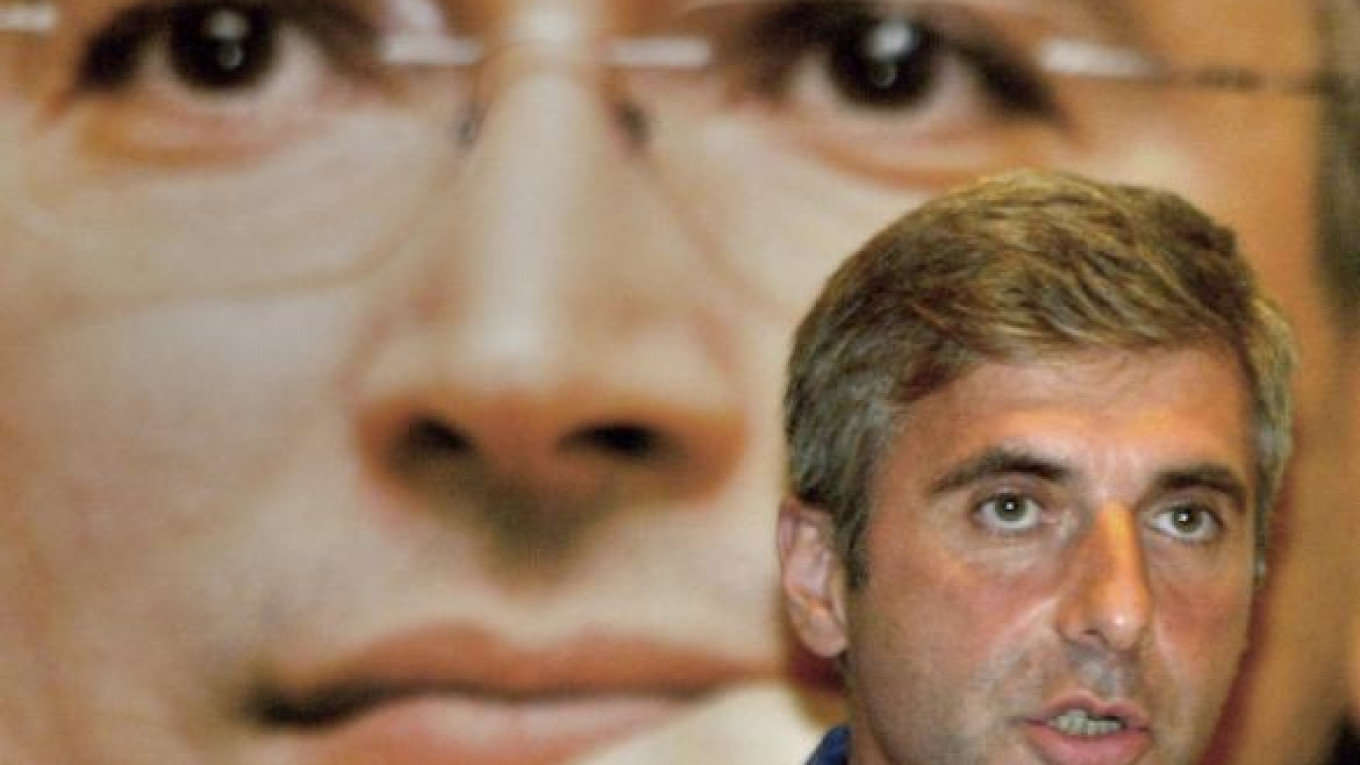Former Yukos CEO Mikhail Khodorkovsky, who was freed by a presidential pardon in December after 10 years in prison, arrived in Israel to meet with his former business colleagues, a news report said Friday.
Khodorkovsky met with former Yukos co-owner Leonid Nevzlin, currently living in exile in Israel, as well as one of the company's major shareholders Vladimir Dubov and a man named Mikhail, presumably another Yukos shareholder Mikhail Brudno, the local business newspaper Calcalist reported.
Prior to his trip to Israel the former oil tycoon had been staying in Switzerland, where his wife and younger children also live.
Earlier, Khodorkovsky was issued a three-month visa at the Swiss Embassy in Berlin, where he had flown immediately after being released.
The former head of Yukos had considered the possibility of residing in Switzerland permanently, media reports said.
Khodorkovsky was released from a penal colony after serving more than a decade in prison following his arrest in 2003 and subsequent convictions for fraud, tax evasion and embezzlement.
Nevzlin, a former partner of Khodorkovsky, has been living in Israel since 2003 and became a citizen, which makes his extradition impossible by Israeli law.
In 2008 the Moscow City Court sentenced Nevzlin in absentia to life imprisonment for allegedly organizing a murder. He has also been convicted in absentia of embezzlement.
While in exile, Nevzlin has managed Khodorkovsky's foreign assets and took to court Russian companies that had acquired Yukos's assets.
Nevzlin's personal wealth is estimated at about $1 billion, Lenta.ru reported.
Yukos's other shareholders Vladimir Dubov and Mikhail Brudno, who also currently live in Israel, are also wanted by the Russian authorities on embezzlement charges. Together they own an Israeli company that manufactures ingredients for plastics production.
A Message from The Moscow Times:
Dear readers,
We are facing unprecedented challenges. Russia's Prosecutor General's Office has designated The Moscow Times as an "undesirable" organization, criminalizing our work and putting our staff at risk of prosecution. This follows our earlier unjust labeling as a "foreign agent."
These actions are direct attempts to silence independent journalism in Russia. The authorities claim our work "discredits the decisions of the Russian leadership." We see things differently: we strive to provide accurate, unbiased reporting on Russia.
We, the journalists of The Moscow Times, refuse to be silenced. But to continue our work, we need your help.
Your support, no matter how small, makes a world of difference. If you can, please support us monthly starting from just $2. It's quick to set up, and every contribution makes a significant impact.
By supporting The Moscow Times, you're defending open, independent journalism in the face of repression. Thank you for standing with us.
Remind me later.


